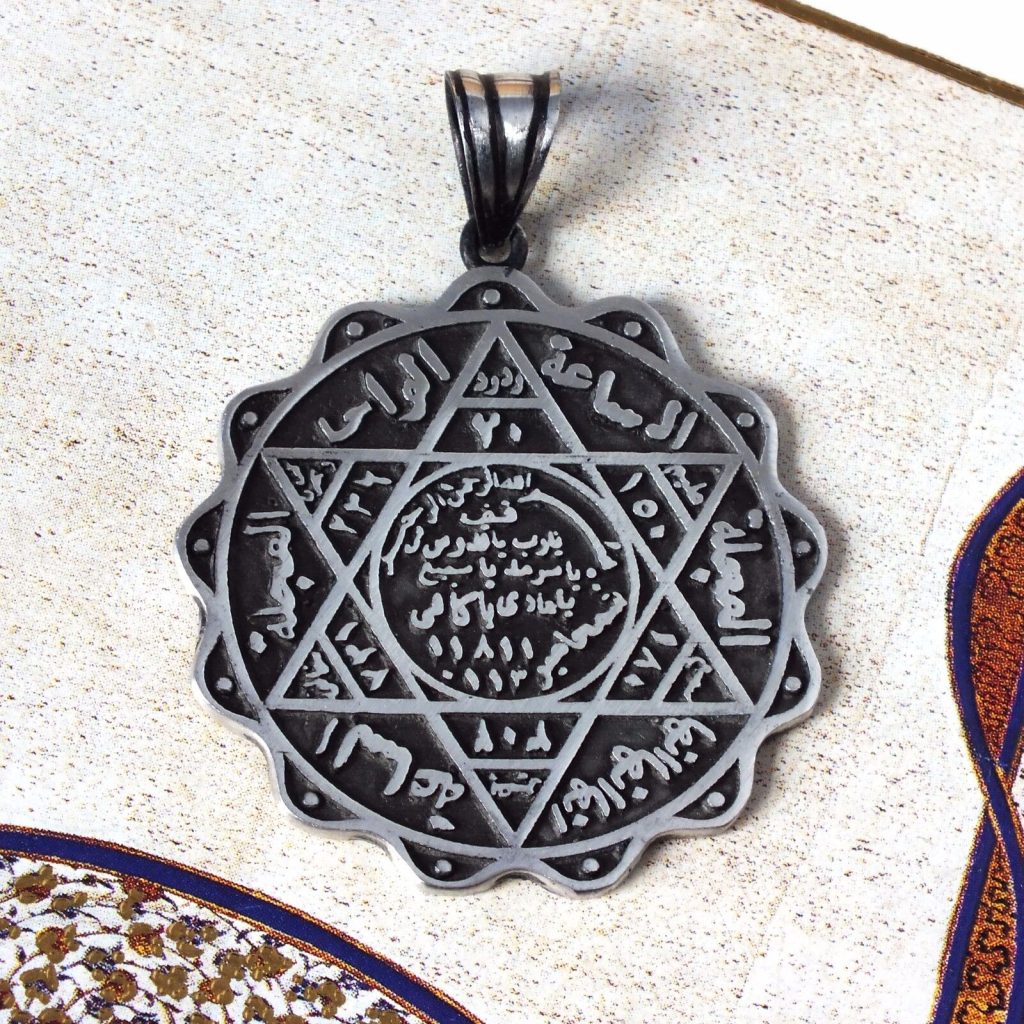In the realm of Islamic spirituality, talismans have long held a significant place, believed to possess mystical powers and the ability to channel divine energy. Rooted in ancient traditions and deeply intertwined with Islamic mysticism, the use of talismans spans cultures and regions, offering believers a conduit for spiritual well-being. This article delves into the essence of Islamic talismans, exploring their significance, historical context, and contemporary relevance in fostering spiritual harmony.
Understanding Islamic Talismans
Islamic talisman, known as “Taweez” or “Ta’wiz,” are inscribed objects adorned with sacred verses from the Quran or prayers invoking the names of Allah and the Prophet Muhammad (peace be upon him). These talismans are crafted with meticulous care and imbued with spiritual intentionality, believed to safeguard the wearer from harm, ward off evil, and attract blessings and divine protection.
Historical Roots and Cultural Significance
The use of talismans in Islam traces its roots to the early days of the faith, influenced by pre-Islamic Arabian practices and the mystical traditions of Sufism. Throughout Islamic history, talismans have been employed by scholars, mystics, and ordinary believers seeking spiritual guidance and protection in their daily lives.
Scholars of Islamic mysticism, such as the renowned Sufi saints, have extolled the virtues of talismans as instruments for deepening one’s connection to the divine and attaining spiritual enlightenment. The intricate designs and inscriptions found on Islamic talismans reflect a synthesis of esoteric knowledge, sacred geometry, and Quranic wisdom, encapsulating the profound mystical teachings of Islam.
The Spiritual Power of Islamic Talismans
Central to the efficacy of Islamic talismans is the belief in the divine potency of sacred words and symbols. The Quranic verses and invocations inscribed on these talismans are believed to resonate with spiritual energy, serving as conduits for divine blessings and protection.
Devotees often wear talismans as a form of spiritual armor, trusting in the unseen forces they represent to shield them from malevolent influences and guide them along the path of righteousness. Whether worn as amulets, hung in homes, or carried on one’s person, Islamic talismans serve as tangible reminders of God’s presence and the interconnectedness of the material and spiritual realms.
Contemporary Perspectives and Practices
In contemporary Islamic societies, the use of talismans remains prevalent, albeit with varying degrees of acceptance and interpretation. While some scholars and religious authorities endorse the use of talismans as a legitimate form of spiritual practice, others caution against potential abuses or superstitions associated with their usage.
For many believers, the act of crafting or acquiring a talisman is accompanied by rituals of purification and supplication, seeking divine guidance and blessings upon the talisman and its intended recipient. In times of adversity or uncertainty, the presence of a talisman can offer solace and reassurance, serving as a tangible symbol of faith and resilience.
Ethical Considerations and Spiritual Integrity
As with any spiritual practice, the use of Islamic talismans necessitates a discerning approach rooted in ethical conduct and sincere devotion. While talismans can serve as powerful tools for spiritual empowerment, they should not be regarded as substitutes for genuine piety or moral rectitude.
Furthermore, practitioners are urged to exercise caution and discernment in selecting and using talismans, avoiding practices that may veer into the realm of superstition or occultism. The true essence of Islamic spirituality lies not in the external trappings of ritualism, but in the cultivation of inner purity and submission to the divine will.
Conclusion
Islamic talismans embody a rich tapestry of spiritual symbolism, cultural heritage, and mystical wisdom, offering believers a tangible means of connecting with the transcendent dimensions of reality. As conduits of divine energy and sources of spiritual solace, talismans continue to inspire awe and reverence among seekers of inner peace and enlightenment.
In harnessing the energy of Islamic talismans for spiritual well-being, believers are invited to embark on a journey of self-discovery and divine communion, guided by the eternal wisdom of the Quran and the prophetic tradition. Through sincere devotion, ethical conduct, and steadfast faith, the transformative power of talismans can illuminate the path towards spiritual fulfillment and inner harmony in an ever-changing world.




